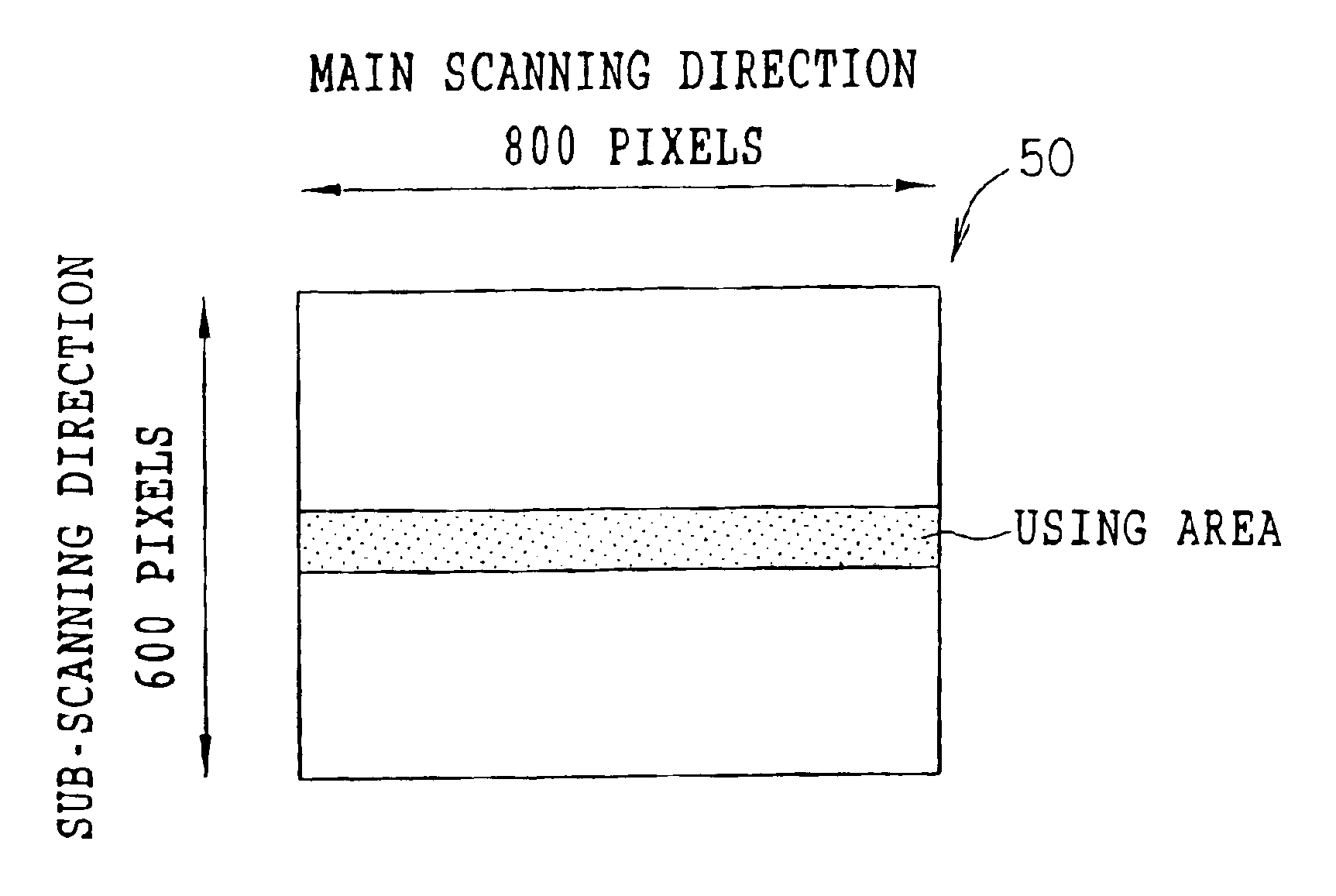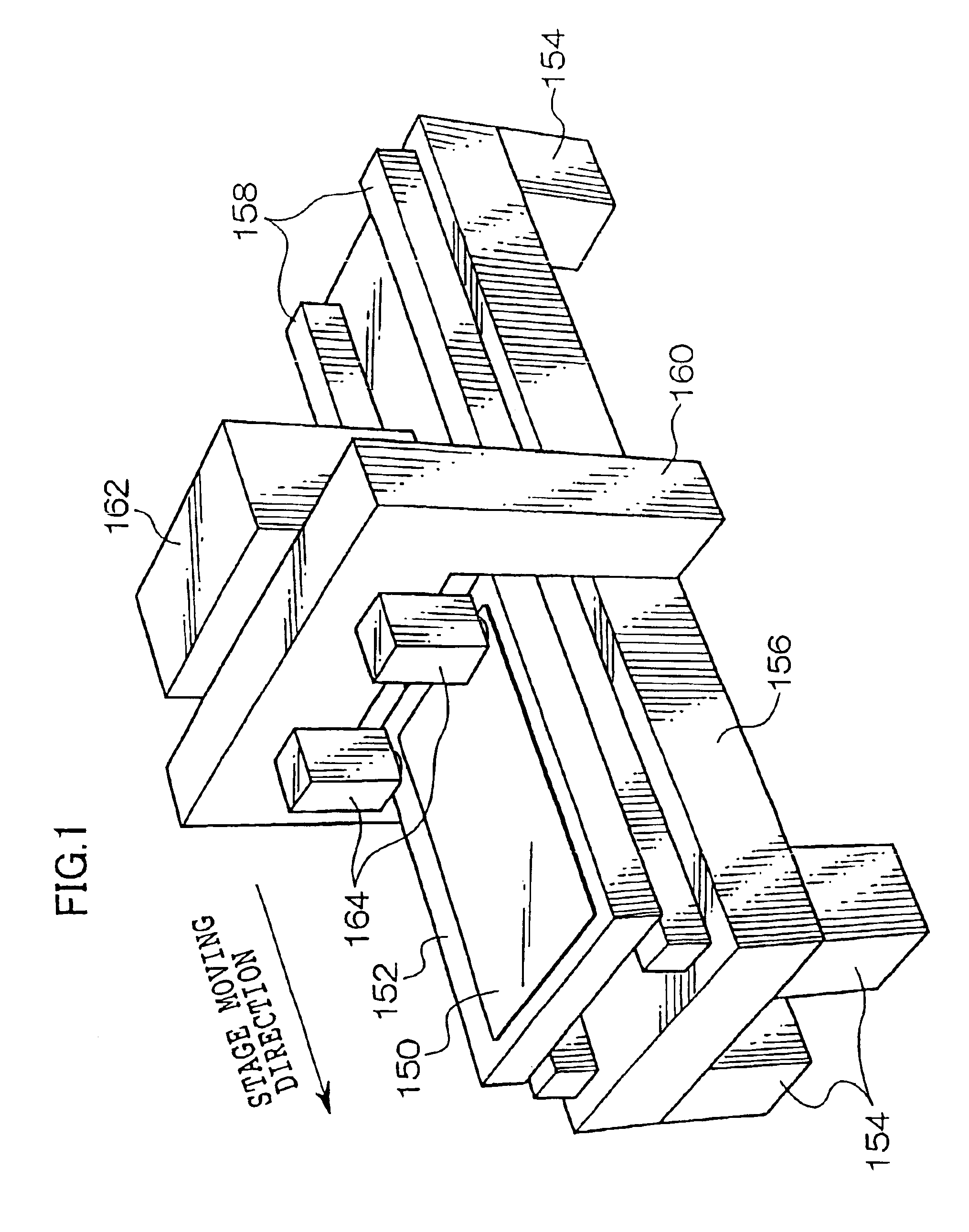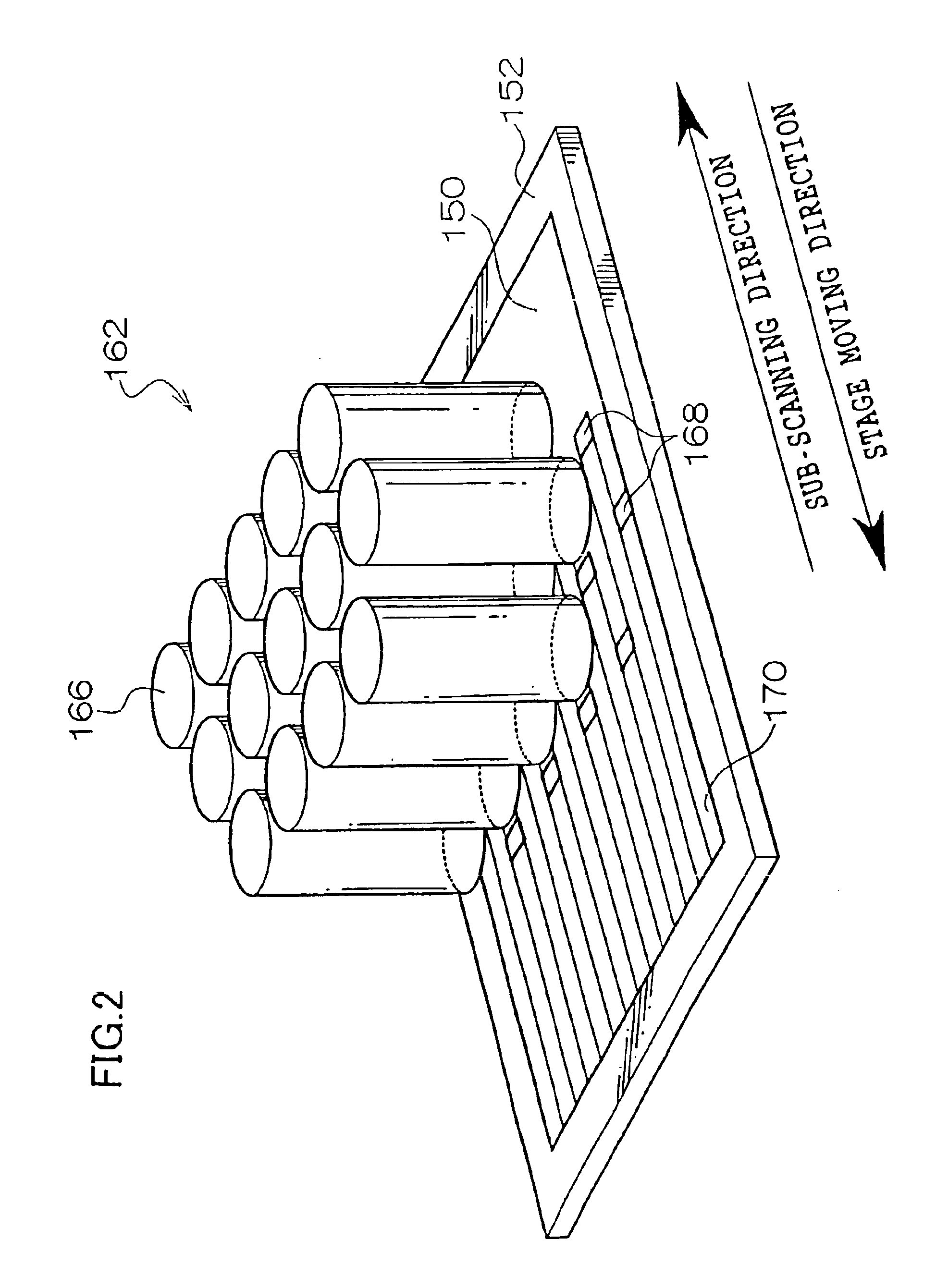Exposure head, exposure apparatus, and application thereof
- Summary
- Abstract
- Description
- Claims
- Application Information
AI Technical Summary
Benefits of technology
Problems solved by technology
Method used
Image
Examples
first embodiment
[First Embodiment]
[0142]A first embodiment is the exposure apparatus including the exposure head exposing the photosensitive material with the light beam modulated by the spatial light modulator according to the image data.
(Construction of the Exposure Apparatus)
[0143]As shown in FIG. 1, the exposure apparatus according to the embodiment of the invention includes a flat plate-shaped stage 152 which absorbs a sheet-shaped photosensitive material 150 to a surface of the stage 152 and maintains the photosensitive material 150. Two guides 158 extending along a stage-moving direction are placed on an upper surface of a thick plate-shaped setting table 156 which is supported by four legs 154. While the stage 152 is arranged so that a longitudinal direction of the stage 152 faces the stage-moving direction, the stage 152 is supported by the guides 158 so as to be able to reciprocate. The exposure apparatus is provided with a driving device, which is not shown, for driving the stage 152 alo...
second embodiment
[Second Embodiment]
[0260]A second embodiment of the invention is the embodiment of the rapid prototyping apparatus in which a photo-curable resin is exposed by the laser beam modulated with the spatial light modulator according to the image data to shape a three-dimensional model.
(Rapid Prototyping Apparatus)
[0261]As shown in FIG. 32, the rapid prototyping apparatus according to the embodiment of the invention includes a vessel 156 whose upper surface is opened, a liquid photo-curable resin 150 is stored in the vessel 156. A plate-shaped elevating stage 152 is arranged in the vessel 156, the elevating stage 152 is supported with a supporting portion 154 arranged outside the vessel 156. The supporting portion 154 is provided with an external thread portion 154A, and a lead screw 155 which is rotatable with a driving motor (not shown) is bolted in the external thread portion 154A. The elevating stage 152 is elevated by rotating the lead screw 155.
[0262]Above a liquid surface of the ph...
third embodiment
[Third Embodiment]
[0284]A third embodiment is the embodiment of the stacking rapid prototyping apparatus in which powder is sintered to form a sintered layer by using the light beam modulated with the spatial light modulator according to the image data and the sintered layer is stacked to shape the three-dimensional model including powder-sintered material.
(Stacking Rapid Prototyping Apparatus)
[0285]As shown in FIG. 35, the stacking rapid prototyping apparatus according to the embodiment of the invention includes the vessel 156 whose upper surface is opened. The inside of the vessel 156 is divided into three portions in the lengthwise direction with two partitions, a shaping portion 153 for producing the shaped article is arranged in the central portion, and supplying portions 155 which supply powder 150 used for the shaping to the shaping portion 153 are arranged on both sides of the shaping portion 153.
[0286]The powder such as engineering plastic, metal, ceramics, sand, and wax ca...
PUM
| Property | Measurement | Unit |
|---|---|---|
| Wavelength | aaaaa | aaaaa |
| Angle | aaaaa | aaaaa |
| Diameter | aaaaa | aaaaa |
Abstract
Description
Claims
Application Information
 Login to View More
Login to View More - R&D
- Intellectual Property
- Life Sciences
- Materials
- Tech Scout
- Unparalleled Data Quality
- Higher Quality Content
- 60% Fewer Hallucinations
Browse by: Latest US Patents, China's latest patents, Technical Efficacy Thesaurus, Application Domain, Technology Topic, Popular Technical Reports.
© 2025 PatSnap. All rights reserved.Legal|Privacy policy|Modern Slavery Act Transparency Statement|Sitemap|About US| Contact US: help@patsnap.com



